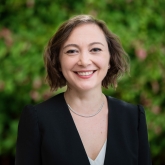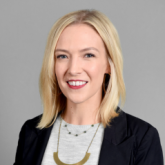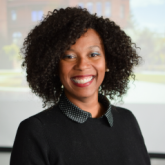ASU’s D.C. portfolio reflects the university’s idea-centered focus. We are here to bring the ideas of our students and faculty to bear in national conversations—so that ideas may be shared and combined to shape solutions to issues that matter to the country and the world. ASU in D.C. is a platform from which to educate and prepare students, a mechanism to convene a wide range of thought leaders, and a catalyst to forge innovative partnerships.

Our D.C. Portfolio
Applied Policy Centers
Consortium for Science, Policy and Outcomes
The Consortium for Science, Policy and Outcomes is an intellectual network aimed at enhancing the contribution of science and technology to society’s pursuit of equality, justice, freedom and overall quality of life. CSPO’s DC office expands its capacity to help decision makers and institutions grapple with the immense power and complexity of science, technology and society by communicating knowledge and methods, educating students and decision makers, forming strategic partnerships, participating in science policy initiatives, and building community of intellectuals and practitioners.
L. William Seidman Research Institute
The L. William Seidman Research Institute is the consultancy arm of W. P. Carey School of Business, Arizona State University. First established in 1985 to serve as an applied business research and consultancy resource for the southwest business community, the Seidman Research Institute collects, analyzes and disseminates information about local economies, benchmarks industry practices, and identifies emerging business-research issues that affect productivity and competitiveness.
McCain Institute
Inspired by the leadership of Senator John McCain and his family’s legacy of public service, the McCain Institute at Arizona State University implements concrete programs aimed at making a difference in people’s lives across a range of critical areas: leadership development, human rights, rule of law, international security and combatting human trafficking.
Morrison Institute for Public Policy
The Morrison Institute for Public Policy is a statewide leader in examining critical issues for Arizona and the region, and is a catalyst for public dialogue. An Arizona State University resource, the Morrison Institute uses nonpartisan research, analysis and public outreach to help improve the state's quality of life.
The Institute's main mission is to encourage public discussion; using high-quality, current research and historical understanding to create an informed Arizona citizenry.
ASU Research
As the New American University, ASU has built its research enterprise on the principles of conducting transdisciplinary, use-inspired, and socially embedded research. ASU is one of the fastest growing research enterprises among U.S. universities, remaining nimble and responsive to emerging research and economic development opportunities locally, nationally and globally.
ASU’s research enterprise is a portfolio of diverse, strategic pursuits and partnerships that tackles emerging challenges. Through partnership with and support from federal agencies and other institutions in Washington D.C., research at the university is enabling significant progress towards developing and implementing solutions to some of the world’s grandest challenges.
Highlighted Examples of Federally Funded Research at ASU
Highlighted Research Capabilities
Center for Gender Equity in Science and Technology

The Center for Gender Equity in Science and Technology (CGEST) aims to create an interdisciplinary, racially-ethnically diverse community of scholars, students, policy makers, and practitioners who explore, identify, and ultimately create innovative scholarship about and best practices for under-represented girls (p-20) in STEM.
Participation from women belonging to diverse race-ethnic-social class groups in science, technology, engineering, and math (STEM) fields is lacking. Despite efforts to narrow divides, there are no coordinated interdisciplinary research and evidence-based strategies that consider girls and women of color, their identities, and potential impact in these fields.
The Center's mission is to actively drive the discourse and experiences of underrepresented girls in STEM by owning, generating and critiquing the collective body of scholarship on, and offering culturally responsive programs for, girls of color (e.g. African American, Native American, Latina, and Asian American) and STEM education.
Center on the Future of War

A collaboration between ASU and New America, an interdisciplinary think tank and civic enterprise, the Center on the Future of War explores the social, political, economic, and cultural implications of the changing character of war and conflict. The Center connects ASU faculty with policymakers and national media, organizes collaborative research projects, produces reports and publications, and designs and implements innovative educational programming.
Our evolving initiatives, publications, and student and community engagement are designed to describe the future of warfare as it evolves over the next decade and beyond, predict its likely impact on the state and other forms of social organization, and develop new paradigms for understanding and addressing conflict and systematic violence. In this way, our work is part of a larger effort to help the U.S. evolve beyond the post-9/11 state of perpetual war by conducting innovative research and analysis and developing creative and context-appropriate policy frameworks.
Consortium for Science, Policy & Outcomes
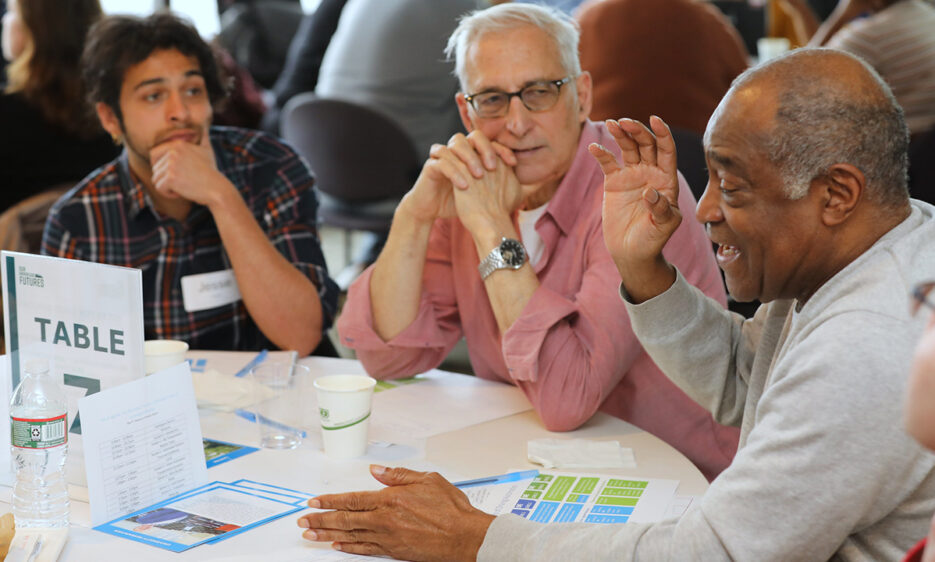
The Consortium for Science, Policy & Outcomes is an intellectual network aimed at enhancing the contribution of science and technology to society's pursuit of equality, justice, freedom and overall quality of life.
The consortium’s D.C. office expands its capacity to help decision-makers and institutions grapple with the immense power and complexity of science, technology and society by communicating knowledge and methods, educating students and decision-makers, forming strategic partnerships, participating in science policy initiatives, and building a community of intellectuals and practitioners.
Forums, Workshops and Debates
As a comprehensive national university, ASU regularly convenes events in Washington, D.C. intended to facilitate conversations on critical national and international issues. Regularly occurring series of events bring together experts, policy makers, practitioners and the public to examine topics ranging from science policy, human rights, global policy, leadership, higher education, and emerging technologies and their transformative effects on society and public policy.
McCain Institute
Consortium for Science, Policy & Outcomes
New Tools for Science Policy: A Breakfast Seminar Series
CSPO Conversations: Occasional Encounters in Science, Society and Policy
Future Tense
Future Tense
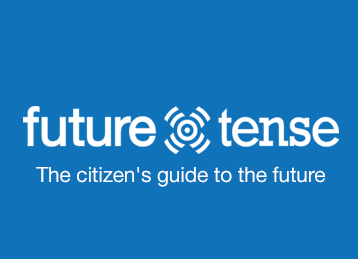
Future Tense is the citizen’s guide to the future.
A partnership of Slate, New America, and Arizona State University, Future Tense explores how emerging technologies will change the way we live. Future Tense seeks to understand the latest technological and scientific breakthroughs, and what they mean for our environment, how we relate to one another, and what it means to be human. Future Tense also examines whether technology and its development can be governed democratically and ethically.
Future Tense asks these questions in daily commentary published on Slate and through public events featuring conversations with leading scientists, technologists, policymakers, and journalists.
To connect with Future Tense, follow us on Twitter and visit the Future Tense channel on Slate.
Government and Community Engagement
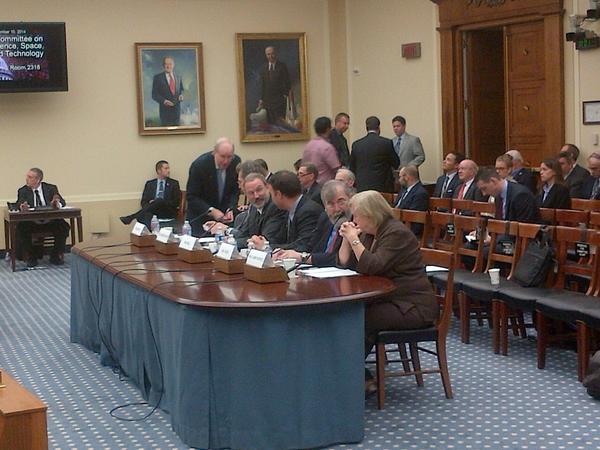
The Office of Government and Community Engagement (GCE) represents ASU on Capitol Hill and works to advance the University's charter and legislative priorities with the Arizona Congressional Delegation and other Members of Congress. The office actively participates in national associations to advance issues of importance to ASU and serves as a resource to faculty and staff for federal legislative issues.
GCE is also responsible for submission of quarterly and semi-annual federal lobbying reports to the U.S. House of Representatives and U.S. Senate.
Highlighted faculty work in DC
In addition to faculty and staff based in Washington, D.C., many ASU faculty in Arizona are also actively engaged in Washington, D.C. through their research, scholarship and teaching. These faculty and staff provide their expertise to federal and international agencies, lead federally-funded research for the national academies, contribute to the development of public policy, connect students to national leaders, lead nationwide education initiatives and much more.
- Executive Director, Global Security Initiative
- Professor of Practice, School of Computing and Augmented Intelligence
- Senior Global Futures Scientist, Global Futures Scientists and Scholars
Nadya Bliss is the executive director of the Global Security Initiative (GSI) at Arizona State University (ASU). In this capacity, she leads a panuniversity organization advancing research, education and other programming in support of national and global security. GSI serves as ASU’s main interface with the DoD, the Intelligence Community (IC) and the U.S. Department of Homeland Security (DHS). GSI is home to the Center for Cybersecurity and Trusted Foundations, the Center for Human, Artificial Intelligence and Robot Teaming, a DHS Center of Excellence, and the Center on Narrative, Disinformation and Strategic Influence.
Bliss is an experienced leader of science and technology organizations with over two decades in the defense, security and higher education sectors. She has expertise in leading and growing mission-focused research organizations. With in-depth knowledge of the technology transition pipeline, Bliss has significant experience identifying advanced research capabilities to address mission and application needs.
- Honors Faculty Fellow at Barrett, the Honors College
- Affiliate Faculty, Consortium for Science, Policy and Outcomes
Jenny Brian is a faculty lead for CSPO’s ‘Science Outside the Lab,’ a two-week workshop in Washington, D.C. where science and engineering graduate students have an intensive experience in the policy-making arena and the culture of our nation’s capital. She also serves as a faculty participant for the ‘Increasing Diversity in Science Studies’ program funded by the National Science Foundation and held in Washington, D.C.
Brian served as co-principal investigator on a National Science Foundation-funded grant on synthetic biology, the results of which were presented at CSPO’s New Tools for Policy Seminar in Washington, DC. Video of this program is available here.
- Executive Director, Center for Gender Equity in Science and Technology
- Associate Professor, School of Social Transformation
Kimberly Scott directs ASU's Center for Gender Equity in Science and Technology (CGEST), a founding partner along with the White House Council on Women and Girls, of the National STEM Collaborative. The collaborative is a consortium of 10 higher education institutions and 11 nonprofit partners dedicated to scaling research-based best skills and knowledge, resources and practices on access, completion, and workforce development for women of color in STEM.
Scott is a White House STEM Access Champion of Change, an honor she received in recognition of her work in supporting and expanding STEM opportunities for African-American students, schools and communities through her CompuGirls program.
Issues in Science and Technology
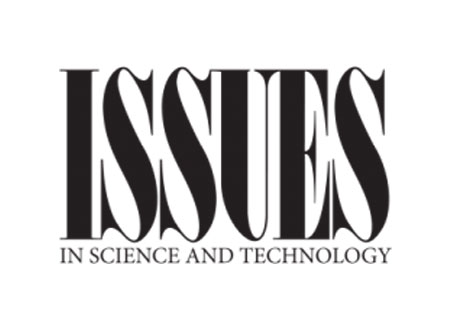
Issues in Science and Technology is a quarterly journal published by the National Academies of Sciences, Engineering, and Medicine and Arizona State University. The journal is a forum for discussion of public policy related to science and technology. Our concerns encompass a broad range of themes and perspectives related to the ways that societies seek to advance knowledge and innovation to achieve social goals. Our audience is everyone involved or interested in this effort.
Unlike a popular magazine, in which journalists report on the work of experts, or a professional journal, in which experts communicate with colleagues, Issues is a place where researchers, government officials, business leaders, and others with a stake in public policy can share ideas with a broad audience. When it comes to the relationship between society and advances in science and technology, the perspectives of the boardroom, the statehouse, the federal agency, and the community are as important as that of the laboratory.
The world is continually transformed by new scientific knowledge and technological innovation whose use and advance, in turn, are shaped by society itself. The ultimate purpose of our journal is thus idealistic but vital: Issues aims to provide deeply informed, highly accessible, challenging yet constructive contributions to public discussions and democratic decision-making that can enhance the contribution of science and technology to the creation of a better world.
McCain Institute
Inspired by the leadership of Senator John McCain and his family’s legacy of public service, the McCain Institute advances character-driven leadership based on security, economic opportunity, freedom and human dignity around the world.
The McCain Institute implements concrete programs aimed at making a difference in people’s lives across a range of critical areas: leadership development, human rights, rule of law, international security and combatting human trafficking.
Melikian Center for Russian, Eurasian and East European Studies
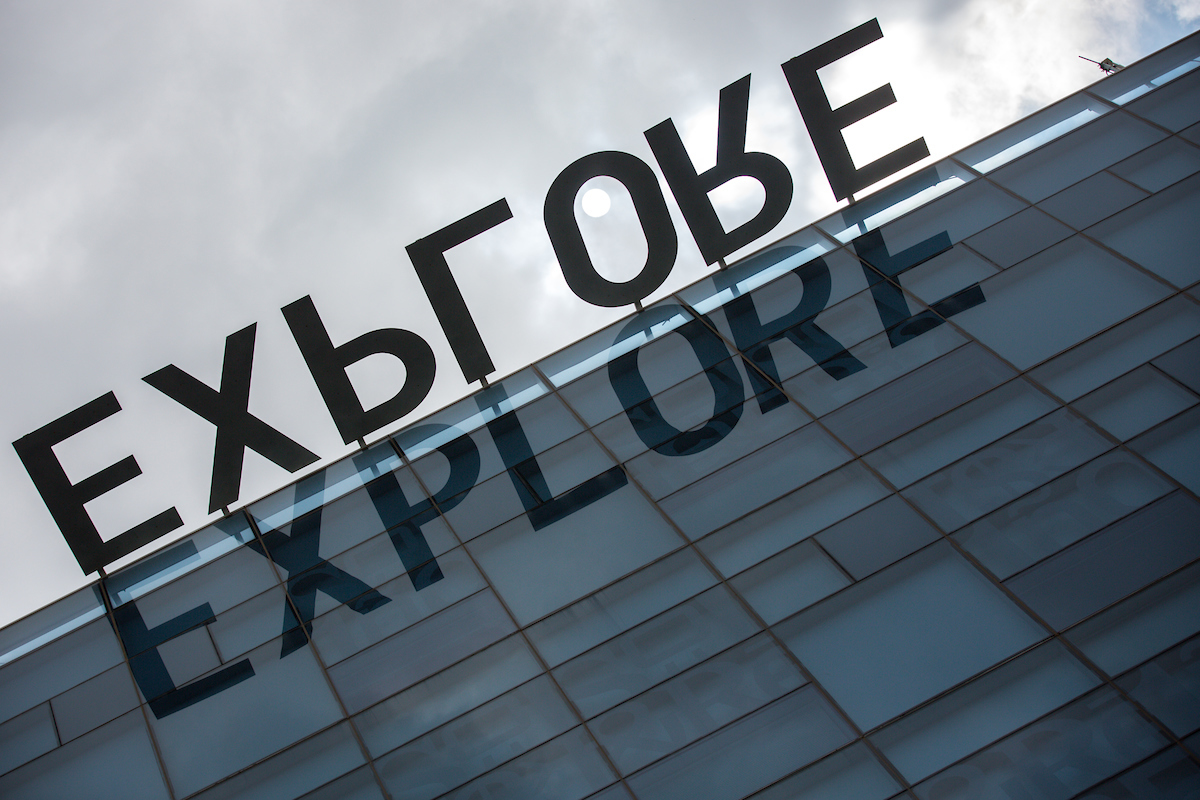
The Melikian Center for Russian, Eurasian and East European Studies advances innovative use-inspired research and teaching on the languages, societies and geopolitics of greater Eurasia. The Center’s core mission is to enhance contextual expertise and cultural awareness in the communities it serves, through partnerships across disciplinary, ideological and geographical borders.
Since the formal dissolution of the Soviet Union in December 1991, U.S. perceptions of Russia, Eurasia and East Europe have evolved slowly, while this region’s economic, cultural and geopolitical significance has dramatically shifted. The Melikian Center offers insight and combats prejudice and disinformation in and on this critical region of the world.
National Affiliations
National Capital Chapter, ASU Alumni Association
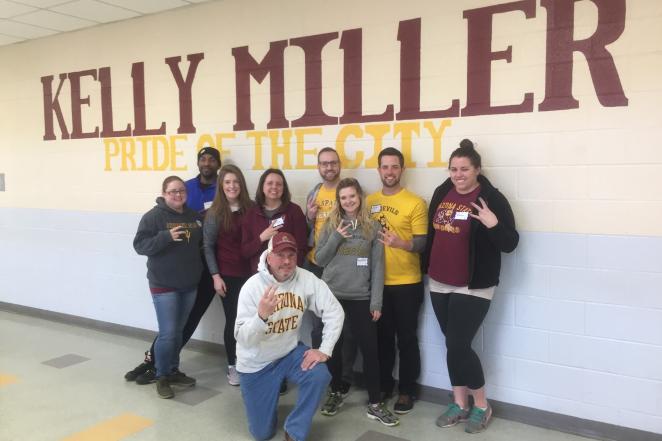
The National Capital chapter of the ASU Alumni Association is a vibrant community for ASU alumni living in the Washington, D.C. area. The chapter offers extensive networking and philanthropic opportunities while actively maintaining alumni’s connection to ASU and fellow graduates.
New America Partnership
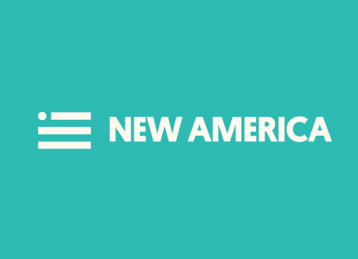
ASU and New America have forged a collaboration designed to bring together the strengths of the nation’s largest public research university with one of the nation’s leading interdisciplinary think tanks and civic enterprises. ASU and New America are engaged in an experiment to see how each organization’s talents can be applied in tandem to understand and elucidate the problems and opportunities facing the Unites States.
Examples of this unique partnership include Future Tense, a project designed to explore emerging technologies and their transformative effects on society and public policy, and the Center on the Future of War, a collaboration focusing on the profound social, political, economic and cultural implications of the changing nature of war and conflict.
Sandra Day O’Connor College of Law
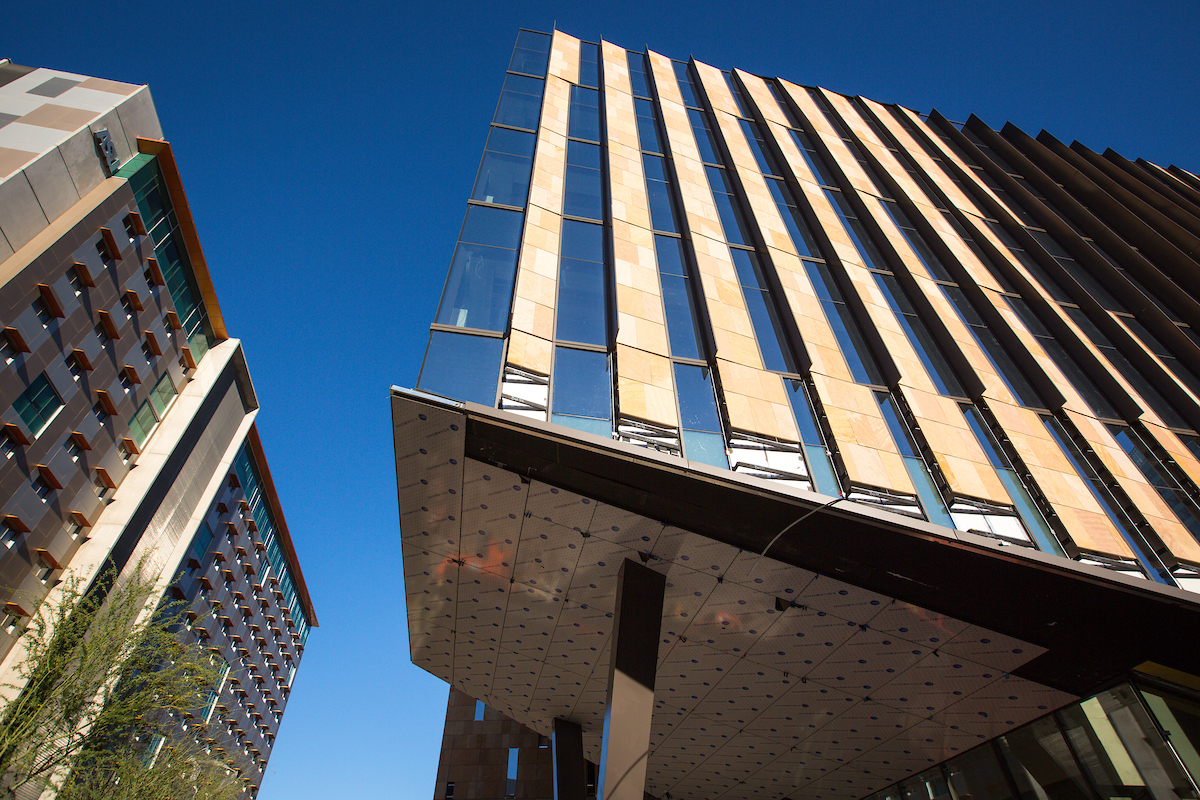
The Sandra Day O’Connor College of Law at Arizona State University is one of the country's preeminent law schools. Ranked No. 30 nationally by U.S. News & World Report, ASU Law provides comprehensive and personalized legal education through graduate programs with a wide range of courses, popular focus areas, and unique experiences. ASU Law’s world-class faculty and administrators provide students with unparalleled opportunities to gain insights and practical skills needed to address legal challenges locally, nationally, and globally. More than 90 percent of ASU Law students participate in public service through externships, clinics, and pro bono activities.
ASU Law offers the unique opportunity for law students to study and work for up to one full year in Washington, D.C. The ASU Law D.C. programs connect students to the breadth of externship and networking opportunities unavailable anywhere else. ASU Law students can set themselves apart by gaining experience and contacts in Washington, whether or not they foresee staying in the nation’s capital after graduation. ASU Law D.C. programs are led by faculty with decades of first-hand experience in the government, non-profit, and private sectors in Washington.
Thunderbird School of Global Management
Since its inception in 1946, the Thunderbird School of Global Management has focused exclusively on educating global leaders in the intricacies of international business and management through graduate and undergraduate degree offerings, as well as executive education in locations around the globe.
